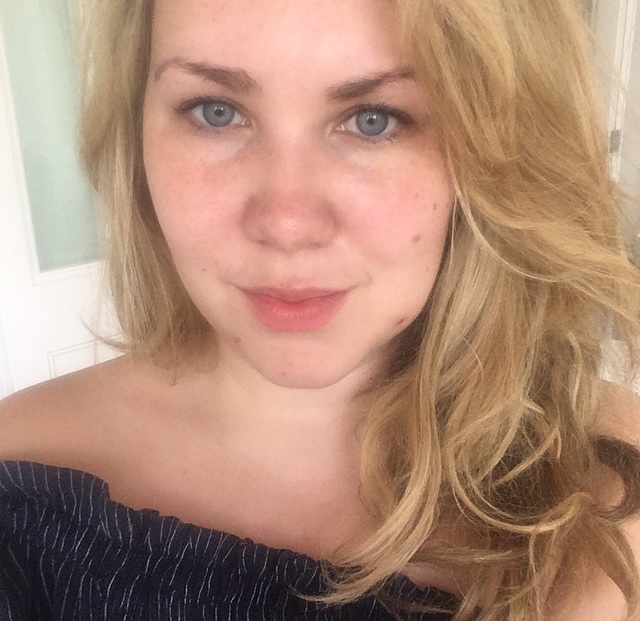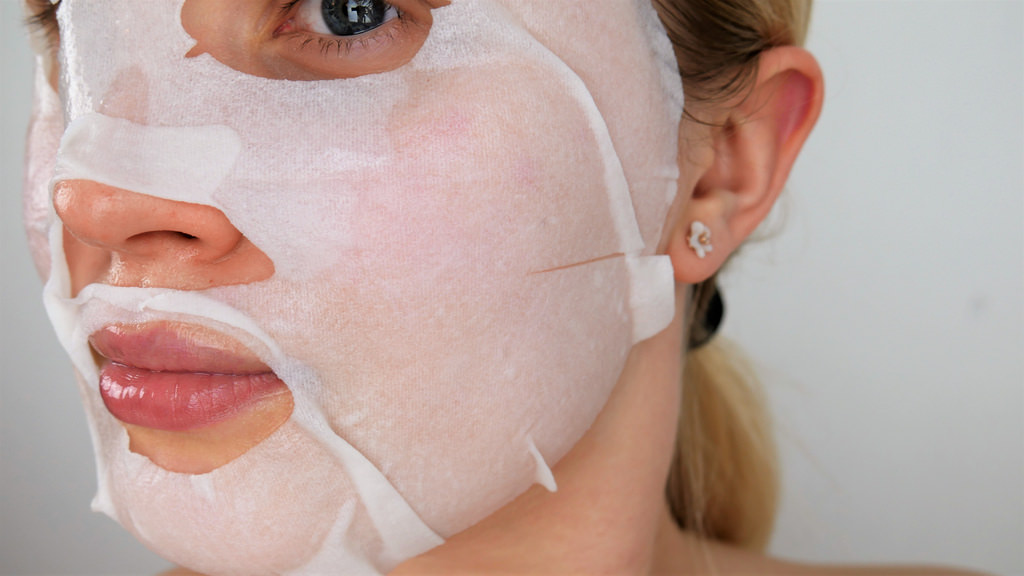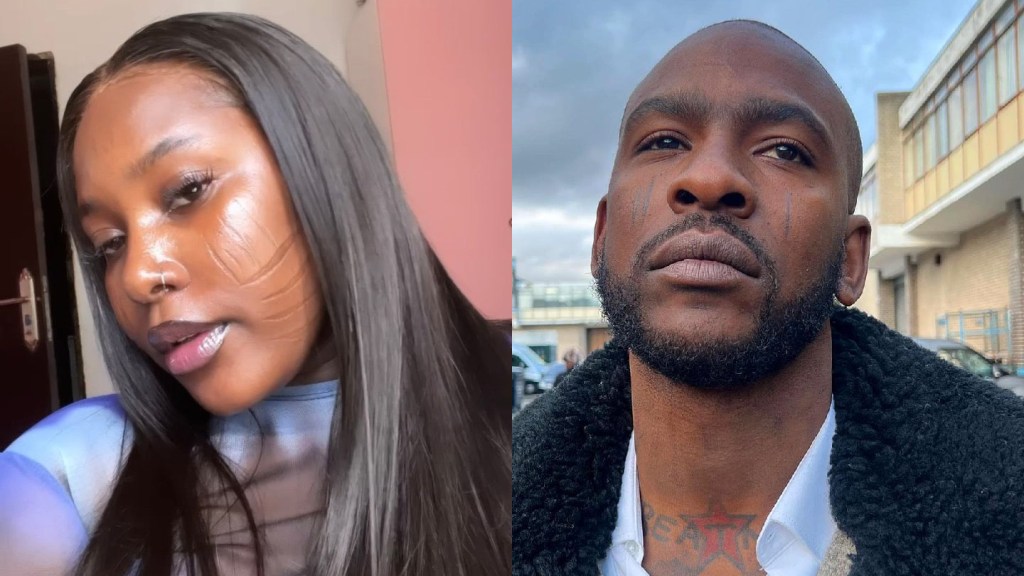Habits are hard to break, especially the ones that cost a ton of money and give you nothing in return. Case in point: alcohol, cigarettes and the vast majority of products unleashed on the world by Big Skincare.
Over the past ten years I have spent an embarrassing amount of cash on serums, toners, cleansers, moisturisers, masks, exfoliators, oils, mists and everything in between. Anything I could splash out on that promised me the face of a cherub, I would buy. At its peak I was up to an impressively thorough six-step daily routine – and I felt strangely proud that I had reached such complex and long-winded heights. Mind you, I never cracked it: I was always “on the cusp” of finding the winning combination of products that worked for me, so I could finally gain clean, righteous skin.
Videos by VICE
After trialling what felt like hundreds of different products, I found my skin had never felt more irritated, spotty, dull, dry, uneven and greasy. So, in the hopes of starting anew, I cut out the bulk of the products, the faff of the “skincare steps” and stripped back to the bare minimum. I wanted to cleanse away everything that I’d been taught about skincare.
I limited myself to an occasional cleanser, a simple exfoliation product and, if I was feeling fancy, a sheet mask. The result: annoyingly, that my skin is finally looking clear and healthy. This isn’t me boasting, but instead me crumbling under the knowledge that, seemingly, both my skin and purse were previously under attack, while the skincare industry laughed all the way to the bank.

This, obviously, was no real revelation: articles are regularly published about the “skincare con“. Mind you, pro-skincare articles are also regularly published in response. So what’s the answer?
Founder of Elite Aesthetics, Dr Shirin Lakhani, who works with clients on skincare regimes, said, “We are brought up to think that the ritual of cleanse, tone and moisturise is as important as brushing our teeth, and yet, contrary to common belief, only 15 percent of us actually need a moisturiser. These are people who have genetically dry skin, leading to conditions such as eczema or psoriasis.
“The rest of us have normal skin with large pores, an oily T-zone and oil or sebum, for which a moisturising cream is of absolutely no benefit to your skin. Instead, using a moisturiser will likely perpetuate the problem, leading to the accumulation of dead surface skin cells, dryness, acne and sensitivity. Using a moisturiser for just three weeks turns off your national skin hydration and results in your skin becoming lazy and reliant on external moisture.”
Essentially, if you don’t actually need to moisturise, all that cream is just sitting on the surface of your skin and acting as a barrier. Instead of providing deep hydration, our creams are suffocating the skin and creating excess oils.
“Natural hydration ultimately has to come from within the body and cannot be reversed by applying moisturiser on the skin’s surface,” said Dr Lakhani. “What most people really need from a young age is a good cleanser, exfoliator and sunscreen. One of the first things I do with my patients is break this dependence and start them on active products which wake up the skin cells and restart the skin’s own moisture production.”
Of course, basic facts don’t always stand up to massive marketing budgets: Dr Lakhani adds that the kind of low-quality products many high street retailers promise as cure-alls can lead to otherwise healthy skin becoming more sensitive.
Beauty blogger, and founder of Awake Organics, Melissa Kimbell, agrees: “If you cleanse with detergents, over exfoliate, use synthetic moisturisers or use alcohol-based toners that are too harsh, you can disturb your skin’s natural balance,” she explains. “This can lead to excessive oil production, dryness and even eczema-like skin conditions. It can also start a vicious cycle of feeling as though you need to apply more products to counteract the effects.”

Of all the products I tried, sheet masks – a one-stop shop, unencumbered by any other “complimentary” creams or oils – were my favourite, and really the only thing that gave instant results.
With most other products – whether affordable or expensive – there was always this unwritten rule about loyalty: that you had to invest in the entire range before the initial product actually started to kick in and work. On a day-to-day basis, whether I double cleansed, used simple toners, eye creams and organic moisturisers, or did my full six-step routine, it didn’t make much of a difference – I’d still end up with breakouts and greasy and blemished skin. On a bad day, bumps and cyst-like spots would appear, even when I was following the skincare manual.
Lynne Baker, founder of Calla Salon, said, “The biggest single issue I see as a busy facialist is that of misdiagnosis. People are, on the whole, absolutely hopeless at correctly diagnosing their own skin. Few people know the difference between dry and dehydrated skin, and almost without exception will over treat their skin, especially when it’s oily, believing that more is more, rather than less is more. I regularly see skin stripped of its oil, sensitised from using harsh products, or from using products way too often, or too much of it. But most of all, from using completely the wrong product for their skin type.”
Of course, you can see why people get themselves trapped in this cycle: in an era where a social media-friendly, sheet-masked face is a simple way to tell the world “I take good care of myself,” the skincare pressure is on. I felt the same way – it’s inescapable.
But when I changed to a simple wash and go approach, not only did I have more time on my hands and money in my pockets, my skin was able to do its thing naturally. My hormones still bring up spots, and when I’m suffering from a particularly bad hangover my skin is dehydrated, but on the whole, it’s the best it’s ever been.
The main takeaways from this hard-learnt lesson was that there are a few things every person can do to help them get flawless skin, if indeed they’re bothered in the first place. After running through the usuals – avoid sun, wear sunscreen, remove make-up – Dr Lakhani said, “Exfoliating at least twice weekly is vital for perfect skin. We all tend to either skip it or overdo it. It keeps the pores minimised, keeps the fine lines at bay and resurfaces the skin perfectly.
“Retinol [Vitamin A] is essential for healthy skin. It wakes up the cells and encourages them to produce natural moisture from within, speeds up exfoliation, stimulates collagen production and encourages circulation to help take away the toxins and bring essential nutrients to the skin.”
Lynne Baker reminded me to watch my sugar intake. “I see skin suffering from glycation [where sugar molecules attach themselves to other molecules, for example proteins and fats, causing ageing] as a result of a high sugar intake,” she said. “Avoid alcohol, too. A source of hidden sugar, it leads to broken vessels and can be a cause of rosacea [a red facial rash].”
As I had suspected, the overwhelming conclusion was that less is more. As Melissa Kimbell explained, “I think it’s best to keep your routine simple and natural, and to look for quality over quantity. Despite what Instagram tells us, we don’t need a 12-step skincare routine.”
While I appreciate stripping back a routine may not work for everyone, personally, I’ve found there’s definitely something to be said for curbing the creams. Everyone’s skin is different, of course, and although some medically-prescribed products may be a godsend for those who suffer from skin problems like acne, eczema and psoriasis, for the majority, a gargantuan skincare regime just isn’t all that necessary.
Plus, if you cut down on your exfoliator expenditure, you’ll have the fun of finding something else to waste all your resources on.




